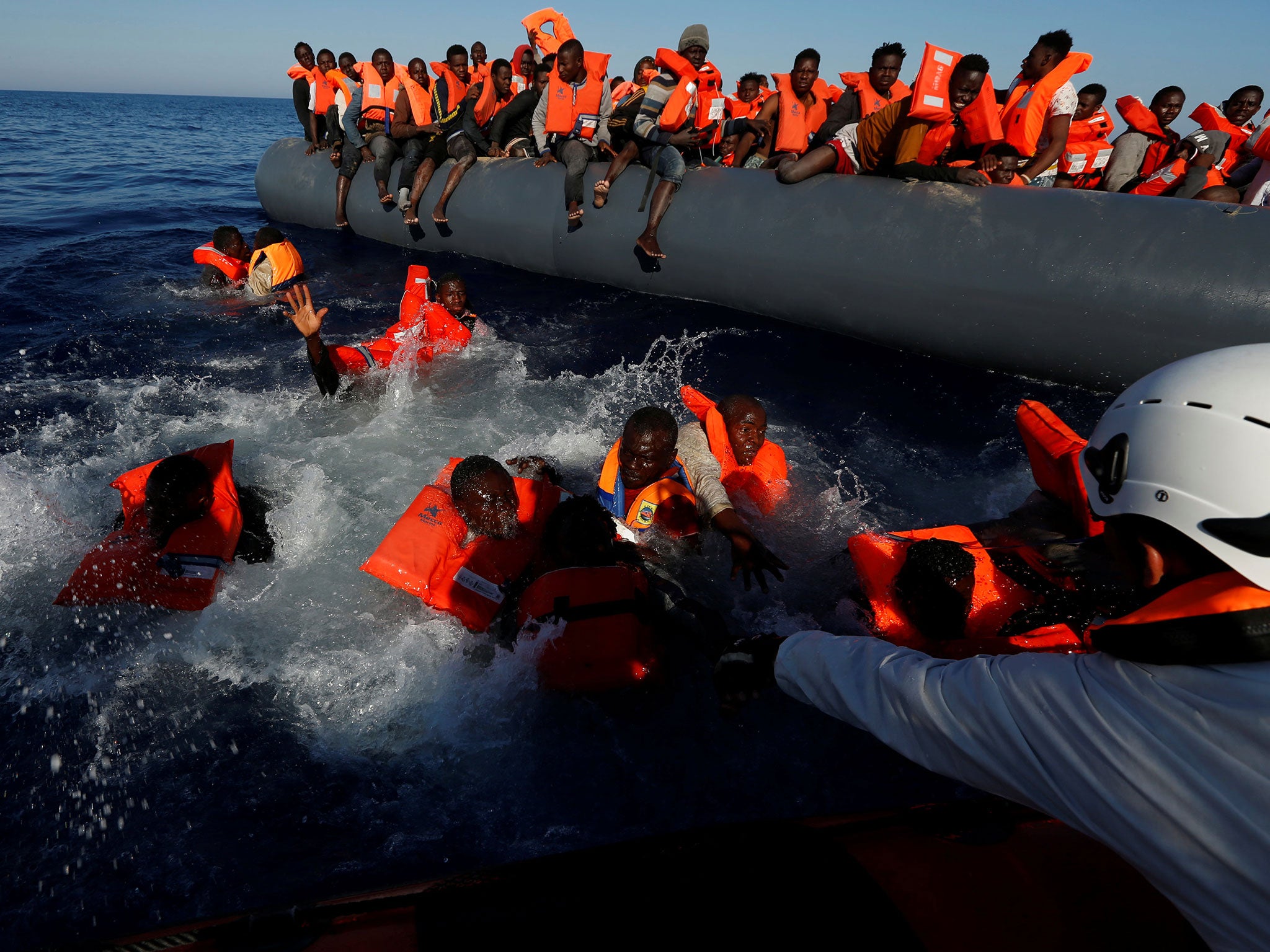EU's 'reckless operations' is causing refugees to die in the Mediterranean, says Amnesty International
'2017 looks set to become the deadliest year for the deadliest migration route in the world'

Your support helps us to tell the story
From reproductive rights to climate change to Big Tech, The Independent is on the ground when the story is developing. Whether it's investigating the financials of Elon Musk's pro-Trump PAC or producing our latest documentary, 'The A Word', which shines a light on the American women fighting for reproductive rights, we know how important it is to parse out the facts from the messaging.
At such a critical moment in US history, we need reporters on the ground. Your donation allows us to keep sending journalists to speak to both sides of the story.
The Independent is trusted by Americans across the entire political spectrum. And unlike many other quality news outlets, we choose not to lock Americans out of our reporting and analysis with paywalls. We believe quality journalism should be available to everyone, paid for by those who can afford it.
Your support makes all the difference.Refugees are dying in the Mediterranean because of "reckless" EU operations destroying smugglers' safest boats, Amnesty International has said.
The human rights group claims the EU has "turned its back" on a search and rescue strategy that was reducing mortality, in a new report, entitled "A Perfect Storm".
It argues that the search and rescue measures implemented in 2015 dramatically decreased death at sea, but EU governments have now shifted their focus to disrupting smugglers and preventing boats departing from Libya.
The EU naval Operation Sophia, also known as EU Navfor Med, destroyed so many of the wooden boats used by smugglers that huge numbers of people are now making the crossing on less safe rubber dinghies, Amnesty International said.
"With insufficient fuel, no life jackets or other safety features, and often with no means to call for help, such as a satellite phone, these boats have virtually no chance of reaching European coasts by themselves and they are in need of rescue from the moment they depart," the report states.
It added that in the first half of 2017, 73,000 refugees and migrants reached Italy by sea, 14 per cent more than in the same period the previous year.
It is estimated that by the end of June, 2,0030 people had died or gone missing when making the crossing.
The organisation warned that at this rate, 2017 could be the deadliest year for migrants in the Mediterranean.
The report said: "With 2.5 deaths for every 100 people attempting the crossing, 2016 was the deadliest year to date for refugees and migrants on the central Mediterranean. At current rates, the death toll in 2017 promises to be just as high, if not higher."
The EU has two operations in the region including the border control operation Triton, the military operation and Sophia which dedicated to destroying smugglers' boats.
The Italian navy also runs Mare Sicuro, a surveillance operation.
But Amnesty International said these operations were prioritising anti-smuggling operations, surveillance and maritime security instead of dealing with the humanitarian crisis.
The report blamed the "reckless EU strategy" for failing to stop departures from Libya and preventing further loss of life.
It said, the EU strategy was in fact "exposing refugees and migrants to even greater risks at sea".
Amnesty International found that when refugees and migrants were disembarked back in Libya "they faced horrific conditions in detention, torture and rape."
It claimed Libyan coast guards working in cooperation with the EU were capsizing migrant boats in poorly carried out rescue operations.
In some instances, it alleged that the coast guards would also subject migrants to "forced labour, rape and other sexual violence" and "beat them with sticks or gun butts." Others were robbed of of their phones and money, it claimed.
People arriving in Italy were identified by Amnesty as hailing from Syria and African countries like Nigeria, Guinea, Ivory Coast, Gambia, Senegal, Mali and Eritrea.
The majority were fleeing from political persecution, arbitrary detention and torture, rather than economic reasons, the report said.
John Dalhuisen, Amnesty International's Europe director, said: "If the second half of this year continues as the first and urgent action is not taken, 2017 looks set to become the deadliest year for the deadliest migration route in the world. The EU must rethink its cooperation with Libya’s woefully dysfunctional coast guard and deploy more vessels where they are desperately needed.
“Ultimately the only sustainable and humane way to reduce the numbers risking such horrific journeys is to open more safe and legal routes for migrants and refugees to reach Europe.”
Join our commenting forum
Join thought-provoking conversations, follow other Independent readers and see their replies
Comments